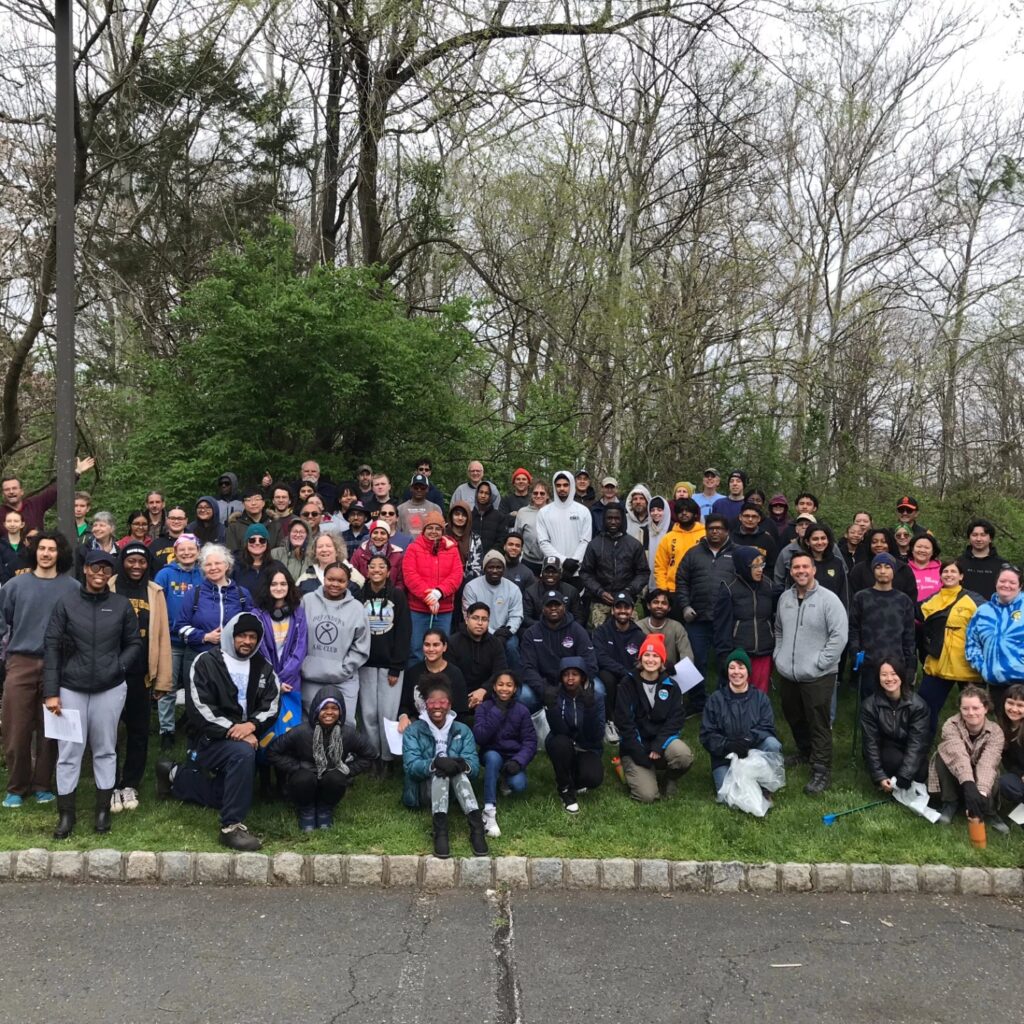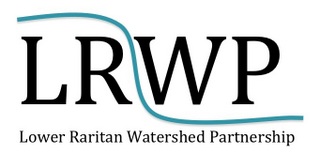Clean-ups / Restoration / Resilience
2024 Clean-ups:
March 2 – South River floodplain clean-up in Old Bridge
April 13 – John Clyde Memorial Earth Day clean-up of Seeley’s Brook in Franklin Township
May 19 – Multi-site clean-up of the Green Brook

Thank you Earth Day 2024 Seeley’s Run (Franklin Township) clean-up volunteers!!
Stormwater Systems Bandalong Bandit Litter Trap in the Green Brook
On April 17, 2024 Green Brook Litter Trap project partners installed a new Litter Trap device, developed by Stormwater Systems, at a litter trouble spot located at the junction of Dunellen, Green Brook Township, and Plainfield in New Jersey.
The Bandit Litter Trap is a floating cage anchored by two booms that direct floating trash into the cage, where it is captured and removed at regular intervals by municipal staff. Its design aims to simplify the removal of litter from the waterway, minimizing DPW and volunteer efforts to keep our streams clean. It also helps to improve water quality, environmental habitat, and human drinking water supplies.
This project is part of the Cornell-Dubilier Electronics Natural Resource Damage Assessment and Restoration (NRDAR) Restoration Plan. Project partners include Dunellen, Green Brook, the Lower Raritan Watershed Partnership, and the Cornell Dubilier Trustees (New Jersey Department of Environmental Protection, US Fish and Wildlife Service, and National Oceanic Atmospheric Administration).
Restoration/Resilience:
“Preparing for climate change is imperative and should be at the forefront of our coastal communities across the nation. But we will not protect our coast lines with only sea walls and tide gates. This alternative is shortsighted, will have dire environmental consequences, and may result in increased damages from failure.
Coastal resilience must be looked at holistically and regionally. We must include engineering, nature-based, economic, and social solutions to successfully mitigate long term-impacts. Coastal states and communities must focus on developing the capacity for regional coastal resilience management plans that integrate businesses, communities, non-profits, academic institutions, and government (at all levels). Without proper stakeholder engagement, coordination, and participation our proposals will continue to fall short of what is needed to prepare for sea level rise.”
-LRWP Board Member, Johnny Quispe
